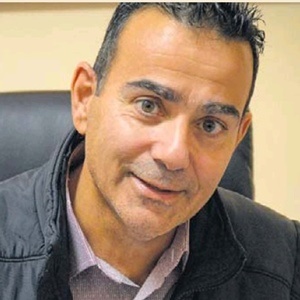
Healthcare is becoming increasingly unaffordable to many people, so imagine coming across a doctor who provides care at a cost that is based entirely on what his patients can afford.
And apart from going beyond following a medical oath, Dr Paulo de Valdoleiros also decided to take an unconventional route by making space for empathy during his consultations, making his job more than simply diagnosing and providing medication to patients.
“My aim is to empower my patients by giving them advice to improve their lifestyle in order to ward off disease or to prevent a chronic condition,” the energetic 58-year-old says.
After de Valdoleiros examines his patients and hands out basic medication, they make their way to reception, and they decide on the fee to pay.
“My staff is trained, so if the patient asks how much they should pay, the answer will always be the same: ‘Whatever you can afford.’
“The aim of this practice is to give people access to healthcare, and to improve their lives," he says, and explains that he isn’t contracted to medical aid as it would defeat the purpose of his practice.
His acts of kindness have since inspired many others, and one Uber driver in Cape Town – who says de Valdoleiros is an "angel" for his altruism – has set up a crowdfunding campaign so that he can continue his work. To date, the campaign has raised more than R24 000.
The importance of managing your emotional health
Emotional health often gets put on the back burner, but we need to recognise its impact on our physical health, says de Valdoleiros.
Last week one of his patients presented with constant, terrible headaches and stiff neck muscles to the point that she couldn’t move her neck at all.
A conversation between doctor and patient revealed that her body was reacting to extremely disrupted emotional health, and that her muscles were literally ‘trapping her’ from free movement.
“Patients don’t usually come in here complaining of an emotional problem, because by the time they come in there’s already a physical manifestation of it.
“And emotional problems that manifest as physical ailments is one of the greatest problems in healthcare. But Western medicine doesn’t quite see it that way,” says de Valdoleiros.
“Your body is a very complex laboratory and we need to realise that your emotional status can cause chemical changes in your body.
“And if those chemicals are negative and of a longer duration, they will eventually lead to signs and symptoms, which contribute to the development of a physical condition. The emotional aspects are important in just about everyone walking in here. People are living in jails out there; they tend to zone out on the issues affecting their lives and avoid dealing with it.”
De Valdoleiros says as soon as he collects the patient from the waiting room, he starts chatting to them as if he’s known them for years.
“There’s no ice to be broken as far as I’m concerned. In this way they’re comfortable and understand that I’m here to help.”
He points out to his patients that he’s not here to pass judgement on anyone.
“Smokers, for example, are always told that they need to quit. But this message is usually passed on in a judgemental manner. What I like to do is tell them a little bit about the lungs and the little balloons that we have at the end of our bronchial tree.
“I teach them these things; whether they remember is irrelevant. All I want is for them to leave here with an experience. I see it as planting seeds in their minds, and I hope those seeds will grow into something. I want them to simply consider what I’ve said, and perhaps even talk about it over dinner with their families.”
The human body is designed for health, not disease
De Valdoleiros takes a great interest in functional medicine, which addresses the root cause of illness and disease.
“In the first three years of medical school we study the anatomy, biochemistry, how your body works etc. – it’s amazing. And then in the end, the focus shifts to diagnosis. So, if you display four out of eight symptoms for Parkinson’s, for example, I must give you a label, followed by medication to manage it. And it then becomes a routine of ‘thank you, next please.’
“As a doctor, it’s as if you stop thinking because you’re simply following protocol like a recipe. But a doctor should be thinking all the time. If a patient visits the doctor and presents with type 2 diabetes, we’re trained to recommend pills and then move them on to insulin a few years later, for instance. And while the disease progresses, nobody bothers to ask why they’re developing diabetes.”
Teaching his patients the importance of taking care of their bodies and living a healthy lifestyle is therefore at the centre of his work. And it is this unexpected but remarkable opportunity to provide personalised medical care that has set up other platforms from which he can impact people’s lives in a positive way.
“People are carrying all these chains; they have no hope or purpose – I just want to help free them.”




 Publications
Publications
 Partners
Partners










